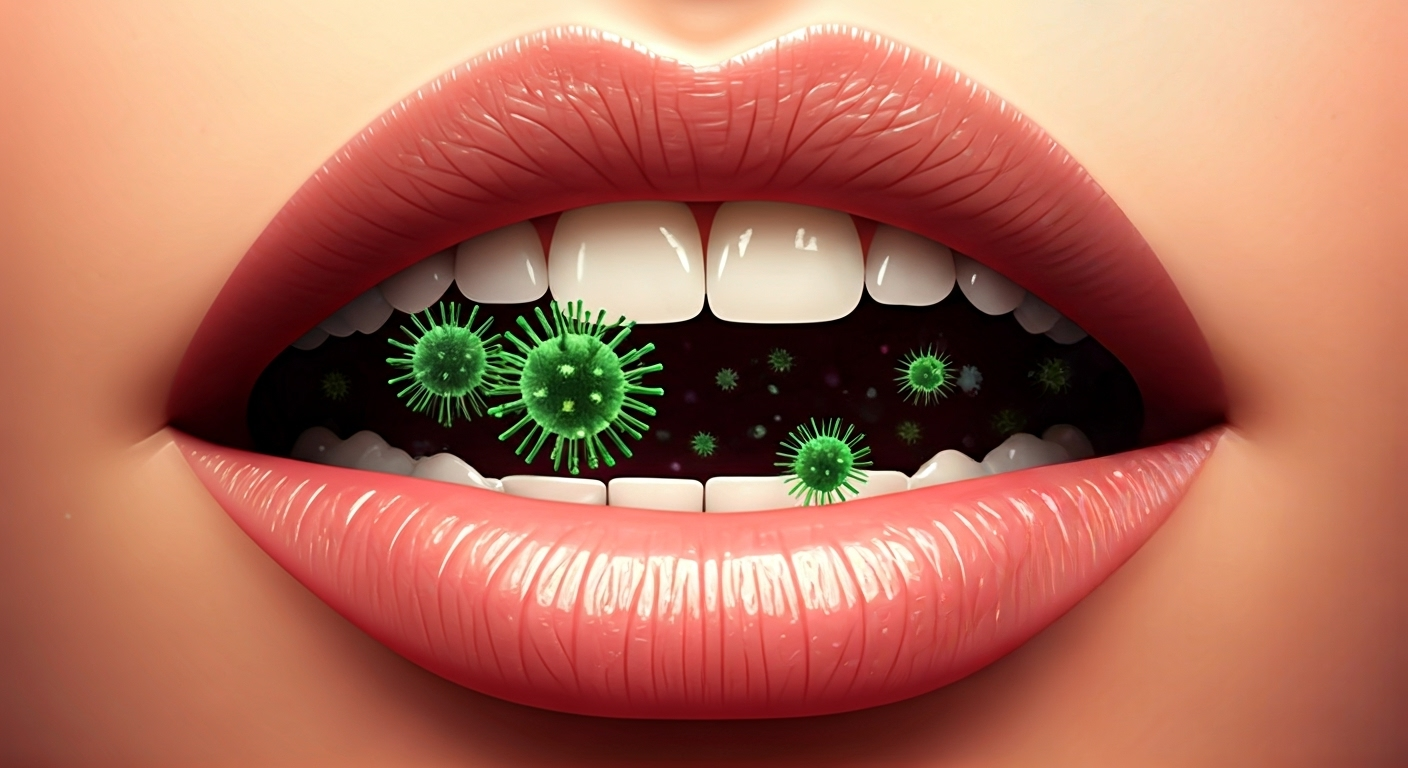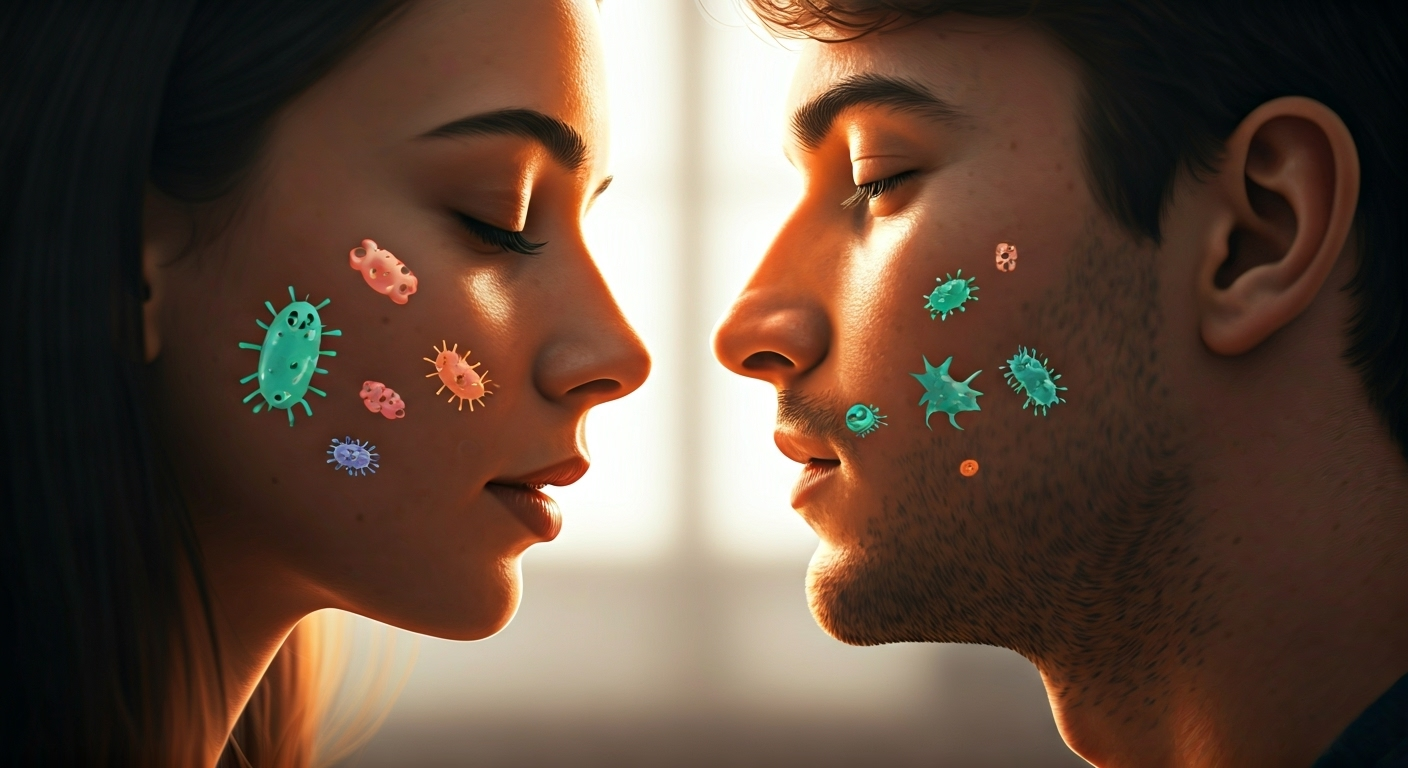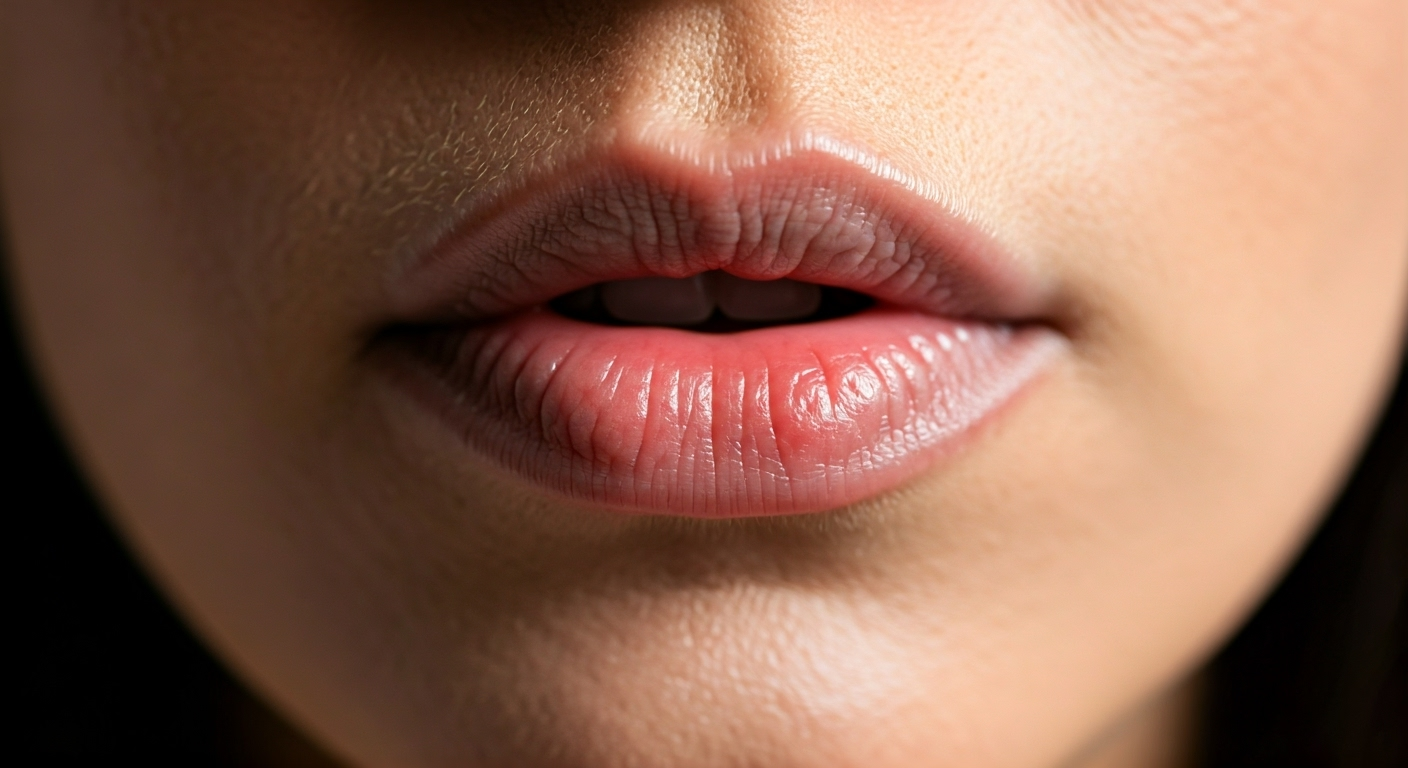Can Kissing Spread Infections Like Mono or Cold Sores?

Key Highlights
- Kissing can spread viral infections, including mononucleosis (commonly known as “the kissing disease”) and cold sores caused by the herpes simplex virus.
- Saliva is a powerful medium for transmitting germs and can pass viruses and bacteria like strep throat through direct contact.
- Serious infections, like HIV and hepatitis, are rarely transmitted through kissing alone.
- By maintaining oral hygiene and avoiding physical contact during outbreaks, the risk of transmission can be minimized.
- Young adults and children are more vulnerable to certain infections passed via close contact.
- Shared utensils and drinks can also serve as carriers for infectious agents, making mindful habits essential.
Introduction
Kissing is a close act between two people. But it can also let some infections pass from one person to the other. Mononucleosis, often called the “kissing disease,” is a viral infection. It spreads through saliva and can give you a sore throat and make your lymph nodes swollen. Another common problem is cold sores. These often come from the herpes simplex virus when there is close contact between people. Since kissing means sharing bodily fluids, it is important to know how these infections spread. People should learn about their symptoms, how to spot them, and what steps to take to stay safe.
How Infections Spread Through Kissing

Transmission of infections through kissing happens mostly because people share bodily fluids and touch each other directly. Saliva has germs in it and can pass viruses like the herpes simplex virus and mononucleosis. This happens when people are in close contact. If there are open sores in the mouth, it is even easier for germs to get in. These germs can cause health problems.
You should also know that poor hygiene can add to the risk. For example, if you or people around you use unwashed utensils or drink from the same glasses, the risk goes up when having close contact like kissing.
Why Saliva Is a Transmission Route
Saliva is one of the main ways germs pass from one person to another. When people kiss, viruses and bacteria can move from one mouth to the other. The herpes simplex virus is one such example. It is carried in saliva and can spread when there are open sores or deep kissing. Small breaks in the skin or the tissue inside the mouth make it easier for this virus to get in.
If you have open sores or wounds in your mouth, your risk goes up. These give germs an easy way to get inside. This explains why cold sores, the herpes simplex virus, and viral infections like mononucleosis often appear after kissing. It’s not just viruses you need to worry about. Bacteria that cause strep throat can also travel in bodily fluids like saliva and spread very quickly between people.
The best way to lower this risk is simple. Take care of your mouth by practicing good hygiene. Look out for early signs of infection. If you, or someone you know, are showing signs like cold sores or signs of any illness, wait before you share close physical contact. Keeping up with saliva hygiene, especially at home, can help keep everyone safe.
Types of Germs Passed by Kissing
Kissing can pass different germs from one person to another. Both viral and bacterial germs can be spread, depending on the situation. This is how it can happen:
- Viral Infections: The herpes simplex virus can give you cold sores. The Epstein-Barr virus leads to infectious mononucleosis, sometimes called “mono.” Both viruses spread through bodily fluids, like saliva, when you kiss.
- Bacterial Infections: Problems like strep throat or gum disease come from bacteria. These germs move from one person to someone else through saliva, especially when there is close contact like kissing.
- Herpes Virus: This group covers HSV-1 and HSV-2, which cause oral and genital herpes. Kissing often helps to transmit the herpes virus, so it is good to be careful if you or the other person has symptoms.
- Other Pathogens: Cytomegalovirus is another type of herpes virus. It can sometimes make people very sick if passed through saliva.
To help lower the risk of getting any of these germs, it is important to watch for symptoms. Try not to have close contact with others if you or they have an active infection or are feeling some symptoms.
Understanding Mononucleosis (“Mono”)

Infectious mononucleosis is often called the “kissing disease.” It mostly shows up in young adults and comes from a viral infection called the Epstein-Barr virus (EBV). People with this usually get tired, have a sore throat, swollen lymph nodes, and fever. Mono symptoms can also make the spleen get bigger, or in other words, an enlarged spleen. If you play contact sports when you have this, it can make things worse or be risky for your health. The kissing disease spreads through saliva when people do deep kissing or share food utensils. Because of this, it matters that we know about close contact and use good disease control steps to stop it from spreading.
What Causes Mono?
Mono is mainly caused by the Epstein-Barr virus (EBV). EBV is part of the herpes virus family. This virus affects white blood cells and changes how the body fights illness. EBV is the most usual cause, but mono can also come from other viruses like cytomegalovirus or hepatitis, though this is not as common.
This illness can be spread through bodily fluids. The most common way is by sharing saliva, for example, kissing or eating with the same utensils. Spread can also happen by blood transfusions or through organ transplants, but this is very rare. Once you have EBV in your body, it stays with you for life. Sometimes, it can become active again when things change in your body.
Doctors use certain blood tests to check for mono. These might include antibody screening or checking a full blood count. The results help them see if you have mono and not something else, like strep throat, which has many of the same signs. This helps them give you the right care.
Symptoms and Complications of Mono
Symptoms of mono vary and often include fever, sore throat, swollen lymph nodes, and fatigue. Some individuals also experience muscle aches, loss of appetite, and rashes that resemble measles. While symptoms usually resolve in weeks, complications can be severe.
|
Symptom |
Possible Complications |
|---|---|
|
Sore throat |
Swollen tonsils obstructing airway |
|
Enlarged spleen |
Risk of spleen rupture |
|
Liver issues |
Hepatitis or jaundice |
|
Blood Problems |
Anaemia or thrombocytopenia |
|
Heart or Nervous System |
Myocarditis or encephalitis |
Avoiding strenuous activities and closely monitoring symptoms can prevent complications like spleen rupture or other life-threatening conditions.
Cold Sores and Herpes Simplex Virus (HSV-1)

Cold sores are very common and can spread easily from one person to another. They are mostly caused by the herpes simplex virus (HSV-1). This is a kind of viral infection. You often see small, painful blisters around the lips and mouth. The simplex virus spreads from person to person when there is direct contact with their bodily fluids. This can happen when you kiss someone or do oral activities with them.
After you get the herpes simplex virus, it stays in your nervous system. It can come back again and again, often when you are stressed or sick. If you look out for signs like tingling or itching, you can better manage the risk of passing herpes simplex to other people. Knowing these early symptoms also helps stop the spread of this cold sore virus.
How Cold Sores Are Contracted
Cold sores are caused by the herpes simplex virus (HSV-1). This viral infection spreads when people have direct contact, like kissing, or when they share things that have been touched by someone with the virus. It usually starts when the sores or lesions first show up and you can see them.
Most cold sores happen because of close contact with others, sometimes during sexual contact, or from saliva with the herpes simplex virus in it. If you have oral herpes, these sores can return often, but you can manage them with antiviral medications.
You are more likely to spread the viral infection if you have direct contact with someone while you have clear symptoms. To protect yourself and others from herpes simplex, watch for early symptoms, avoid close contact during outbreaks, and use good hygiene. This will help you not get or spread cold sores.
Triggers, Recurrence, and Risks
Certain things can make herpes outbreaks worse. These things raise the chances of the herpes virus coming back. Stress, a weak immune system, and being in close contact with someone when you or they have the virus all play a part.
- Stress: When you are under a lot of stress, the herpes virus can wake up and cause new problems.
- Weak Immune System: If your immune system is not strong, you may get cold sores more often.
- Antiviral Medications: These medicines help lower how often the herpes virus comes back. They also make outbreaks less severe.
- Recurring Risks: Doing activities like kissing during a cold sore outbreak makes it more likely that you or other people will catch the virus.
It is good to follow healthcare advice and keep up with oral hygiene. Both help lower how often you get cold sores and can control outbreaks.
Other Infections That Can Be Spread by Kissing
Besides mononucleosis and cold sores, you can get many other infections from kissing. Cytomegalovirus (CMV) is usually found in bodily fluids. This virus is a problem mainly for people who have weak immune systems. Gum disease, which starts from bacteria, can also spread through spit when two people have close contact. The common cold can pass from one person to another through kissing, too. This cold can give you a sore throat and muscle aches. It is important to know about these risks for good disease control and better sexual health for all, no matter the social situation.
Cytomegalovirus (CMV)
Cytomegalovirus (CMV) is a common infection that you can get from direct contact, like kissing. In healthy people, it does not usually cause any problems or signs. For those with weak immune systems, CMV might lead to mild mono symptoms like feeling tired or getting a sore throat. Young adults and infants need to be careful, as newborns can get very sick from it. Knowing about this virus can help with disease control because it can spread through body fluids, even if there are no clear signs like cold sores.
Gum Disease and Bacterial Infections
Gum disease can be a big risk factor for bacterial infections. This often happens when people do not keep up with good oral care. Plaque can build up on the teeth and cause the gums and other nearby areas to be red and swollen. Infection can also start here.
This problem may open the way for bad bacteria to get in. The bacteria can sometimes spread to others, like through close contact. People who have weak immune systems can get worse symptoms from bacteria. This includes those who have some viral sicknesses, like mononucleosis.
Taking care of your teeth and going for regular check-ups can help lower the risks that come with gum disease. Good dental habits are important for your health.
Infections Not Typically Spread by Kissing
Some infections are not usually spread by kissing. For instance, HIV and hepatitis viruses are serious, but they mostly need contact with bodily fluids like blood to be passed on. These can be spread by sexual intercourse or by sharing needles, not by everyday close contact. People sometimes think kissing is a main risk factor for these illnesses, but that is not true. Knowing these facts helps with better disease control and keeps sexual health safe.
HIV and Hepatitis Viruses
The World Health Organization says that HIV and hepatitis usually spread through certain body fluids. Most people get these diseases from sexual intercourse or by sharing needles. These actions are high-risk. You do not get HIV or hepatitis from just kissing. Kissing may pass on mild infections, but not these diseases. It is important to know the difference so people do not get the wrong ideas. Knowing how HIV and hepatitis really spread helps with disease control and supports better sexual health.
Common Myths About Kissing and Disease
There is a lot of confusion about kissing and how diseases spread. Many people think that kissing is the main way to pass on all kinds of infections. This idea is not right. Some illnesses, like mono and oral herpes, can move from one person to another through deep kissing. But many viruses do not spread that easily this way. Some people also believe that cold sores only show up in people who do not keep their mouth clean. This is not true. Even those who have good oral care can get cold sores. Knowing the real facts helps us all stay safer and more aware.
Reducing the Risk of Infection from Kissing
Knowing what can cause an infection when people kiss can help us take steps to stop it. Taking good care of your mouth, like brushing your teeth and having regular dental visits, can lower the chance of getting infections like gum disease. It is also important to notice if you have any symptoms, such as a sore throat or swollen lymph nodes. If you feel these, do not do deep kissing or get into close contact with others until you are well. Also, eating healthy food and drinking enough water helps your immune system. This way, you can cut down on many risks of spreading sickness.
Recognising Symptoms and Knowing When to Avoid Kissing
Knowing the signs of different illnesses is important to help lower the chance of spreading them to other people. Mono symptoms can be tiredness, sore throat, and swollen lymph nodes. If you have these, it’s best to not kiss anyone. When you see cold sores or spot any oral herpes, that means a viral infection is active. In this case, you should also not kiss so you do not give it to someone else. If you are not sure what to do, it is a good idea to talk with your healthcare provider. The advice they give will help you and your partner with disease control.
Best Practices for Oral Health and Prevention
Taking care of your mouth is important if you want to stop infections that can pass through kissing. Make sure to visit your dentist often. This can help find gum disease or early signs of oral herpes, so you can get help in time. You should clean your teeth well. Brush them two times every day and use floss. This helps lower the amount of bacteria in your mouth.
Try to keep yourself hydrated and use mouthwash. Both actions can help keep your mouth healthy. Do not share food utensils, and stay away from deep kissing if you have any signs like a sore throat or cold sores.
Conclusion
To sum up, knowing about the different infections that can spread when people kiss shows why it is important to be aware and careful. Many people know about getting mono and cold sores from kissing, but some do not realize that other things like cytomegalovirus and gum disease can also pass that way. The best things to help lower risk are being safe when kissing, watching out for symptoms, and keeping your mouth clean. It helps to talk with others about sexual health and how to stop infections. When you have the right facts, it is the best way to look after your health.
Frequently Asked Questions
Can you get mono or cold sores from sharing drinks?
Sharing drinks can spread infections such as mononucleosis or cold sores because these germs are found in saliva. If someone who has these viruses drinks from a glass or bottle, and then you use it, you can get infected. The risk goes up if the person who used it before you is sick. It is best to not share drinks with others to lower your chance of getting sick.
Is it safe to kiss someone with a visible cold sore?
Kissing someone who has a cold sore you can see is not safe. The herpes simplex virus can be spread very easily by direct contact. Even if you only see a small cold sore, it is best to not kiss them until it is gone. This helps lower the risk of getting the herpes simplex virus from them.
How long should I wait before kissing again after having mono?
After you get better from mono, it is good to wait at least four to six weeks before you kiss someone again. This gives your body time to heal well and helps stop the virus from spreading to other people. Be sure to talk with your doctor for advice that is right for you.
Are children at risk of catching infections from kissing?
Yes, children can get sick from kissing. Their body’s defense system is not fully ready yet, so they can catch things like mono or HSV-1 more easily. Parents need to talk to their kids about keeping clean and about the risks that come from close contact with others.
Can mouth ulcers spread through kissing?
Mouth ulcers are usually caused by stress or irritation. They are not seen as something you can catch from someone else. But if you kiss someone who has an open sore or there are other infections with it, there may be a risk to pass germs. It is good to be careful so as to avoid spreading anything.





